Ideas on How to Save Money

Ideas to Save Money has been designed to not only provide you with a variety of FREE tips on how to save money, but also to allow you to share with others your own tips to saving money in these tough economic times. Being thrifty does not have to be hard work or time consuming. It only requires the sharing of information and tips between like minded people.
With the major economies in the world suffering from real hardship now is the perfect time to look for new ideas on how to save money. Not all of the money saving ideas that are listed here will be relevant or applicable to everyone, however if you can find 10 or 20 good money saving tips and possibly share 1 or 2 of your own ideas or experiences with other people then everyone will be better off.
Ideas To Save Money is constantly being updated and new money saving tips are being added all of the time, so it is a good idea to visit regularly in order to view any new ideas. Alternatively you can bookmark this website so that you can easily return and take advantage of the large array of free and practical ways to save money.
Categories For Saving Money
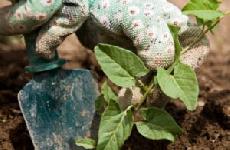 Gardening is an enjoyable pastime that not only gives you pleasure to watch something you planted grow into a beautiful floral display, but also adds a great deal of value to your home. You should follow some simple garden design ideas to ensure that looking after your garden easier and make your house look like a million dollars.
114 Tips in 12 Categories that will Help Create a Vibrant Garden Without Spending a Lot of Money
Gardening is an enjoyable pastime that not only gives you pleasure to watch something you planted grow into a beautiful floral display, but also adds a great deal of value to your home. You should follow some simple garden design ideas to ensure that looking after your garden easier and make your house look like a million dollars.
114 Tips in 12 Categories that will Help Create a Vibrant Garden Without Spending a Lot of Money
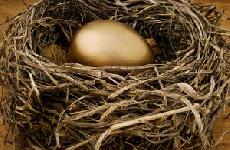 For some people the recent financial upheaval forced them to get their finances back on track by creating a household budget. Other people, however, just want to learn how to save money for a major purchase like a new car, family holiday or special present for the kids.
Learn to Get Your Finances Under Control by Using this Simple Budget Template
For some people the recent financial upheaval forced them to get their finances back on track by creating a household budget. Other people, however, just want to learn how to save money for a major purchase like a new car, family holiday or special present for the kids.
Learn to Get Your Finances Under Control by Using this Simple Budget Template
 They don't teach money management skills in school so kids generally learn how to save money and manage their personal finances by watching and emulating their parents. Therefore you should take your kids to deposit money at the bank regularly and have them read through the free money saving tips for household bills, insurance, mortgages and general banking so that they learn these important skills early.
61 Tips in 7 Categories to Save $1000's on your Banking & Personal Finances
They don't teach money management skills in school so kids generally learn how to save money and manage their personal finances by watching and emulating their parents. Therefore you should take your kids to deposit money at the bank regularly and have them read through the free money saving tips for household bills, insurance, mortgages and general banking so that they learn these important skills early.
61 Tips in 7 Categories to Save $1000's on your Banking & Personal Finances
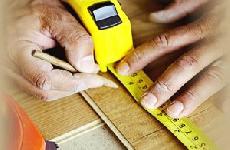 If you are a home handyman or owner builder then you will appreciate the many free home renovation ideas and tips that are available here. With a little bit of know-how and information you will be able to make your house look great without spending a lot of money.
90 Tips in 9 Categories Giving you Ideas to Save Money on your Home Renovations
If you are a home handyman or owner builder then you will appreciate the many free home renovation ideas and tips that are available here. With a little bit of know-how and information you will be able to make your house look great without spending a lot of money.
90 Tips in 9 Categories Giving you Ideas to Save Money on your Home Renovations
 One of the easiest ways to save money is to take advantage of some easy to use shopping tips. These tips will teach you how to save money not only when you are purchasing small every day items but also when you are buying more expensive, one off items.
72 Tips in 7 Categories which will Help you to Save Money whilst Shopping
One of the easiest ways to save money is to take advantage of some easy to use shopping tips. These tips will teach you how to save money not only when you are purchasing small every day items but also when you are buying more expensive, one off items.
72 Tips in 7 Categories which will Help you to Save Money whilst Shopping
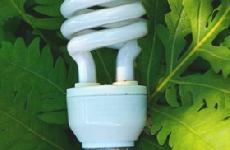 One of the best ideas on how to save money is to recycle everyday household objects and use them for a different purpose. You can also save money at home buy reviewing your home and contents insurances, reducing you phone and electricity usage and being more efficient with your shopping.
109 Tips in 10 Categories with Useful Ideas for Recycling & Saving Money around your House
One of the best ideas on how to save money is to recycle everyday household objects and use them for a different purpose. You can also save money at home buy reviewing your home and contents insurances, reducing you phone and electricity usage and being more efficient with your shopping.
109 Tips in 10 Categories with Useful Ideas for Recycling & Saving Money around your House
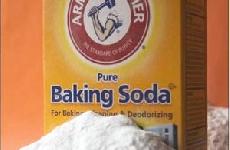 If you want to save time cleaning and be frugal with your money then you should read the ideas on how to use baking soda for cleaning around your home. You can also use bi-carb soda for lots of other personal uses like deodorising, skin care and as a natural acne treatment.
57 Tips in 6 Categories Outlining a Wide Variety of Money Saving Uses for Baking Soda
If you want to save time cleaning and be frugal with your money then you should read the ideas on how to use baking soda for cleaning around your home. You can also use bi-carb soda for lots of other personal uses like deodorising, skin care and as a natural acne treatment.
57 Tips in 6 Categories Outlining a Wide Variety of Money Saving Uses for Baking Soda
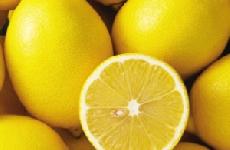 Lemons and lemon juice is a very useful natural product that is readily available to most people. There is lots of different things that you can use lemon juice for around your home such as cleaning and a range of personal uses including the treatment of acne.
61 Tips in 7 Categories that Detail the Potential Uses for Lemons & Lemon Juice
Lemons and lemon juice is a very useful natural product that is readily available to most people. There is lots of different things that you can use lemon juice for around your home such as cleaning and a range of personal uses including the treatment of acne.
61 Tips in 7 Categories that Detail the Potential Uses for Lemons & Lemon Juice
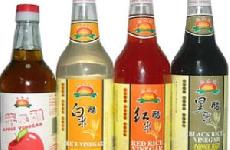 The uses for vinegar around your home are many and varied, including lots of personal health benefits. Using vinegar along with baking soda also allows you to save lots of time cleaning around the house, as well as save money by not having to buy lots of different cleaning agents, detergents and sprays.
86 Tips in 8 Categories describing Practical and Thrifty Uses for Vinegar around your Home
The uses for vinegar around your home are many and varied, including lots of personal health benefits. Using vinegar along with baking soda also allows you to save lots of time cleaning around the house, as well as save money by not having to buy lots of different cleaning agents, detergents and sprays.
86 Tips in 8 Categories describing Practical and Thrifty Uses for Vinegar around your Home
 For couples who are planning to tie the knot there are plenty of money saving wedding ideas available for each and every aspect of your wedding day. This will ensure that you keep everything within your wedding budget without it effecting your special day.
121 Tips in 13 Categories that will ensure you Save Money on your Wedding Day
For couples who are planning to tie the knot there are plenty of money saving wedding ideas available for each and every aspect of your wedding day. This will ensure that you keep everything within your wedding budget without it effecting your special day.
121 Tips in 13 Categories that will ensure you Save Money on your Wedding Day
 If you are organising your honeymoon, a simple weekend away or are taking the whole family on a holiday then you should read some of the informative travel tips and ideas that will help you then next time that you book your domestic or international travel.
93 Tips in 9 Categories to Help your Family have Trouble Free and Cheap Holiday Travel
If you are organising your honeymoon, a simple weekend away or are taking the whole family on a holiday then you should read some of the informative travel tips and ideas that will help you then next time that you book your domestic or international travel.
93 Tips in 9 Categories to Help your Family have Trouble Free and Cheap Holiday Travel
 If you are tightening your family budget to save money it doesn't mean that you have to be a total killjoy when it comes to entertaining the kids. There are plenty of ways for your family to save money on entertainment, as well as other frugal ideas for kids activities.
80 Tips in 7 Categories that Give you Thrifty Entertainment Ideas for the Kids & Entire Family
If you are tightening your family budget to save money it doesn't mean that you have to be a total killjoy when it comes to entertaining the kids. There are plenty of ways for your family to save money on entertainment, as well as other frugal ideas for kids activities.
80 Tips in 7 Categories that Give you Thrifty Entertainment Ideas for the Kids & Entire Family
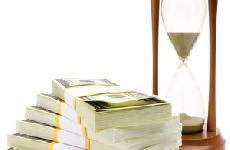 It is often said that Time is Money and for this reason here is a useful section outlining lots of practical time saving ideas for use at home and work. These time saving tips also have the added benefit of giving you more time to spend with your family and reducing your stress levels.
62 Tips in 6 Categories which will allow you to Save Time at both Work & Home
It is often said that Time is Money and for this reason here is a useful section outlining lots of practical time saving ideas for use at home and work. These time saving tips also have the added benefit of giving you more time to spend with your family and reducing your stress levels.
62 Tips in 6 Categories which will allow you to Save Time at both Work & Home
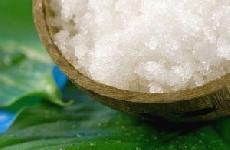 Salt may be a popular condiment when it comes to food but did you also know that it has lots of other household uses as well. These uses for salt range from cleaning and putting out kitchen fires through to healthy skin care and creating a rejuvenating bath.
58 Tips in 6 Categories Detailing a Wide Variety of Practical Uses for Salt around the House
Salt may be a popular condiment when it comes to food but did you also know that it has lots of other household uses as well. These uses for salt range from cleaning and putting out kitchen fires through to healthy skin care and creating a rejuvenating bath.
58 Tips in 6 Categories Detailing a Wide Variety of Practical Uses for Salt around the House
Ideas to Save Money |
About Us |
Privacy Policy |
Contact Us
Copyright © 2022 - Ideas To Save Money - All Rights Reserved
